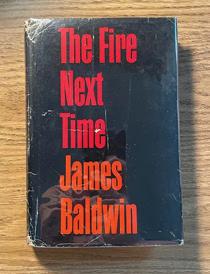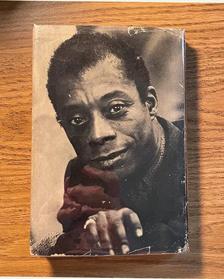the lives of marginalized peoples—institutions that thrive at the expense of Indigenous life.
In the frame of my Dad’s story: Even if we have not individually broken a window via attempted genocide, child separation, violent assimilation, or outright land theft, we settlers and members of settler institutions such as the Catholic Church continuously glean life from the window’s lack of repair, and we do so at the expense of the homeowner. What other options are there? As the Native Governance Center writes, “Instead of spending time on a land acknowledgment statement, we recommend creating an action plan highlighting the concrete steps you plan to take to support Indigenous communities into the future.”12 At the institutional level this support must honestly engage with the possibility of land return. At all levels, we must choose accountability and an ethic that seeks to repair the broken windows of genocide and Indigenous land dispossession.
An ethic of repair may mean institutional or individual land return, wealth redistribution, and/or participation in land protection and land back movements. As Potawatomi writer Katilin Curtice explains, “The wake-up call to use our voices, whether we are Native or not, is one we cannot ignore.”13 Listening to this call with an ethic of repair does not mean, in the words of Pope Francis, a type of “doing good without expecting anything in return.”14 There is no need for this kind of mercy: Indigenous peoples not only know what is best for our Land, but also have plenty to offer the world, including the church. As Curtice says, “Perhaps the church should consider that Indigenous people have more to teach the church than the church has to teach Indigenous people.” 15
What Indigenous nations want from settler members of this ongoing relationship of land occupation is accountability. We want partners to struggle with us to protect our Land. We want partners in the ongoing quest for decolonization: a quest that ultimately aims to return Indigenous Lands back to Indigenous nations. This is what land acknowledgments, or action plans, should be all about.
Dr. Elisha Chi is a registered descendant of the Bering Straits Native Corporation and a descendant of Irish/British Catholics, raised on Duwamish lands in the antifeminist radical traditionalist Catholic community of Seattle. Her interdisciplinary work seeks to articulate anticolonial academic methods and pedagogical practices that pursue Indigenous land return.
12 Native Governance Center, “Beyond Land Acknowledgement: A Guide,” September 21, 2021, https://nativegov.org/news/beyondland-acknowledgment-guide/.
13 Kaitlin B. Curtice, Native: Identity, Belonging, and Rediscovering God (Grand Rapids, Michigan: Brazos Press, a division of Baker Publishing Group, 2020), 115.
14 Pope Francis, “General Audience” (Saint Peter’s Square, Vatican City, September 10, 2014), https://www.vatican.va/ content/francesco/en/audiences/2014/documents/papafrancesco_20140910_udienza-generale.html
15 Curtice, Native, 123.
Choose Solidarity, Not Guilt
BY TESS GALLAGHER CLANCY
Igrew up in a middle class, Irish American family in Montana; this place is the home of my parents, grandparents, and great-grandparents. I love this land, and I feel my ancestors’ presence here. And yet, my love for this land is complicated. At some point I became aware of its history, which I had only really understood in a vague way before: the many dishonestly forged, broken treaties between the emerging U.S. government and the tribes; the encroachment of often violent and belligerent settlers into Native lands; the impoverishment and forced removal of tribes from their lands; the greedy capitalists lobbying the government to annex more and more land so they could pillage and sell the bounties; the ongoing oppression of Native communities at the hands of our government, extractive businesses, and our capitalist economy.
If you grew up white, or of European descent in the United States, perhaps you came to a similar knowledge about the land where you and your forebears grew up. Maybe you experienced the same feeling of having the rug pulled out from underneath your reality as I did. It’s difficult to realize that a brutal and devastating campaign of destruction is ultimately responsible for our presence on this land.
These are the realities we live with. To individualize this reality of great, ongoing injustice, casting blame on each of us as individuals, does little to move toward justice. However, if we believe in right-relationship with the land, one another, and the people who have come before us, this reality is now our own, and it is our responsibility to decide what to do with it.
I want to talk about land, guilt, and responsibility, and how we can navigate these topics to have richer lives—lives that aren’t mired in guilt but that are in relationship and reciprocity to the people, creatures, and places around us. When it comes to white Americans’ duty to support movements for Indigenous sovereignty responsibility isn’t a punishing accusation, but something we can choose because we care about our neighbors and we believe in solidarity with those around us.
A narrative that I’ve heard in social justice environments over the past few years is that perhaps the descendants of settlers shouldn’t talk about the connections they have to land and place. People imply that these connections are paltry, anemic, or even false.
The truth is that this kind of thinking denies reality. The difficulty of a process such as settler colonization, which settles new people on a land at the expense of those already there, is that once people are in a place, they will develop relationships with it. The Earth is our home, our natural environment, and we all belong to it. The relationships that the descendants of colonial settlers have to a place won’t be the same as the relationships that Indigenous people have, but that does not mean they are inevitably flawed and bankrupt.
I want people to come to social movements because they want to be there. I want people to raise their hands for Indigenous sovereignty and seriously engage with what returning land to Indigenous people means, and I want people to do those things because they actually feel their own liberation on the line in this struggle.
Settlers can begin to recognize our own stake in decolonization when we understand that the colonization that landed us here came from the same brutal systems that dominated Europe, where capitalism developed. The brutality that colonizers were quick to use had often been first tested out on their own populations closer to home. It’s in understanding the roots of our own struggles in this corrupt, exploitative economic system that we can connect our struggles with others’.
For people who are the descendants of settlers and colonizers in this land, we’re faced with this twofold reality: that many of our families have experienced great violence from colonial systems and that empires and kings used our families’ lives to gain control over other people’s lands, sending our ancestors to steal and settle it and allowing some of us to share in that prosperity.
For many of us, our initial response is guilt for the privileges that we may now experience, and for the destruction that our families’ presence is built on. However, the guilt and shame we often use to rally people to social justice causes can do the opposite. Instead of solidarity, we often win ourselves timid allies and bitter enemies.
One of Christianity’s legacies is this very behavior toward many of us: most of us know what it feels like to have had enough of this kind of treatment. Neither guilt nor shame helps us address injustice in the long term, and they don’t promote communities or movements that are really founded on rightrelationship. Going through my own process of feeling guilt and shame at my whiteness and my settler-ness, I’ve found that I’m much more willing to accept poor treatment from others, and I disrespect my own well-being and autonomy. Guilt and shame aren’t feelings from which I can sustainably invest in movements, organizing, and change-making. From this
“ One is responsible to life: It is the small beacon in that terrifying darkness from which we come and to which we shall return. One must negotiate this passage as nobly as possible, for the sake of those who are coming after us.”
— JAMES BALDWIN, “THE FIRE NEXT TIME”
understanding, and my love of the life and rhythms of the land and people around me, I have been able to reengage not from a feeling of fear, coercion, and guilt but from a place of respect for myself and others, and a felt sense that what hurts those around me hurts me as well.
James Baldwin wrote in his essay “The Fire Next Time”: “One is responsible to life: It is the small beacon in that terrifying darkness from which we come and to which we shall return. One must negotiate this passage as nobly as possible, for the sake of those who are coming after us.”
Baldwin is saying that being responsible to our own lives means being both responsive to what has come before us, and looking out for who comes next. Those before, us now, those to come—we deserve a lot more than the guilty weight of generations, and a broken world in which the average person has very little power. I think being responsible to the generations of people who have cycled across this land means being serious about what can actually change the present and the future: Organizing ourselves in solidarity with one another’s struggles so that we can collectively exert real power for the kind of world we want to live in. Through solidarity, not guilt, we will be responsible to life.
Tess Gallagher Clancy was born and raised in western Montana on Salish land, in an Irish American family. She thinks a lot about land, place, belonging, and labor, and writes a newsletter at spiritofsolidarity.substack.com.


